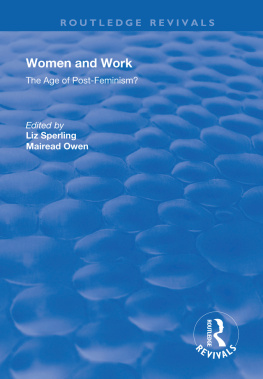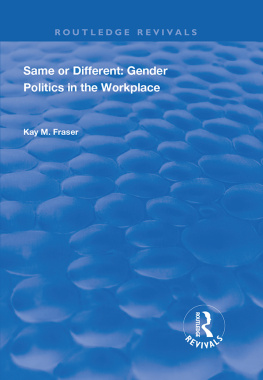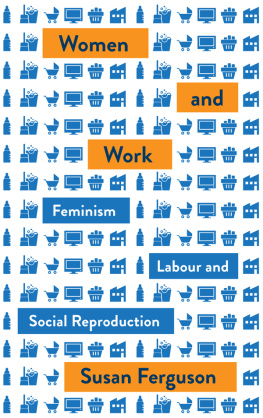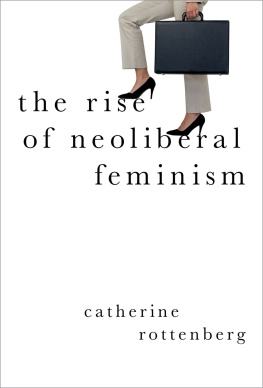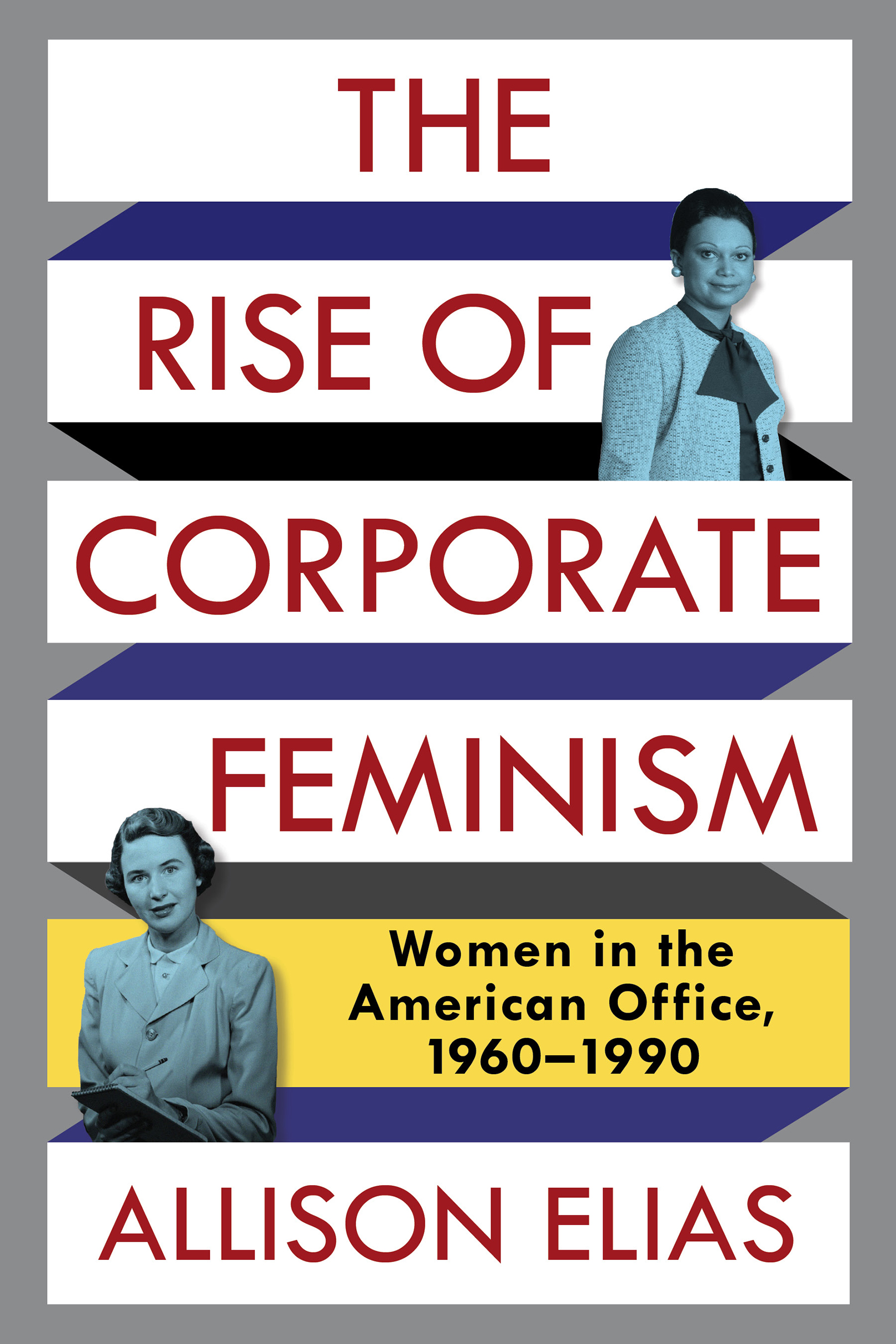Contents
Guide
Pagebreaks of the print version
THE RISE OF CORPORATE FEMINISM
COLUMBIA STUDIES IN THE HISTORY OF U.S. CAPITALISM
COLUMBIA STUDIES IN THE HISTORY OF U.S. CAPITALISM
Series Editors: Devin Fergus, Louis Hyman, Bethany Moreton, and Julia Ott
Capitalism has served as an engine of growth, a source of inequality, and a catalyst for conflict in American history. While remaking our material world, capitalisms myriad forms have alteredand been shaped byour most fundamental experiences of race, gender, sexuality, nation, and citizenship. This series takes the full measure of the complexity and significance of capitalism, placing it squarely back at the center of the American experience. By drawing insight and inspiration from a range of disciplines and alloying novel methods of social and cultural analysis with the traditions of labor and business history, our authors take history from the bottom up all the way to the top.
Capital of Capital: Money, Banking, and Power in New York City, 17842012, by Steven H. Jaffe and Jessica Lautin
From Head Shops to Whole Foods: The Rise and Fall of Activist Entrepreneurs, by Joshua Clark Davis
Creditworthy: A History of Consumer Surveillance and Financial Identity in America, by Josh Lauer
American Capitalism: New Histories, edited by Sven Beckert and Christine Desan
Buying Gay: How Physique Entrepreneurs Sparked a Movement, by David K. Johnson
City of Workers, City of Struggle: How Labor Movements Changed New York, edited by Joshua B. Freeman
Banking on Freedom: Black Women in U.S. Finance Before the New Deal, by Shennette Garrett-Scott
Threatening Property: Race, Class, and Campaigns to Legislate Jim Crow Neighborhoods, by Elizabeth A. Herbin-Triant
How the Suburbs Were Segregated: Developers and the Business of Exclusionary Housing, 18901960, by Paige Glotzer
Brain Magnet: Research Triangle Park and the Idea of the Idea Economy, by Alex Sayf Cummings
Histories of Racial Capitalism, edited by Destin Jenkins and Justin Leroy
Unfree Markets: The Slaves Economy and the Rise of Capitalism in South Carolina, by Justene Hill Edwards
The Dead Pledge: The Origins of the Mortgage Market and Federal Bailouts, 19131939, by Judge Glock
THE RISE OF CORPORATE FEMINISM
WOMEN in the AMERICAN OFFICE, 19601990

ALLISON ELIAS
Columbia University Press
New York

Columbia University Press
Publishers Since 1893
New YorkChichester, West Sussex
cup.columbia.edu
Copyright 2022 Columbia University Press
All rights reserved
E-ISBN 978-0-231-54323-1
Library of Congress Cataloging-in-Publication Data
Names: Elias, Allison, author.
Title: The rise of corporate feminism : women in the American office, 19601990 / Allison Elias.
Description: New York : Columbia University Press, [2022] | Series: Columbia studies in the history of U.S. capitalism | Includes bibliographical references and index.
Identifiers: LCCN 2022008914 | ISBN 9780231180740 (hardback) | ISBN 9780231180757 (trade paperback)
Subjects: LCSH: Women white collar workersUnited StatesHistory20th century. | Women executivesUnited StatesHistory20th century. | BusinesswomenUnited StatesHistory20th century. | FeminismUnited StatesHistory20th century.
Classification: LCC HD6073.M392 U5236 2022 | DDC 331.4/8165800973dc23/eng/20220504
LC record available at https://lccn.loc.gov/2022008914
A Columbia University Press E-book.
CUP would be pleased to hear about your reading experience with this e-book at .
Cover design: Noah Arlow
Cover art: Alamy
FOR ROB

CONTENTS
I n 1971 Gloria Steinem, then a journalist with New York magazine, delivered the commencement address to the graduating class at Smith College. She spoke about the ways in which the social construction of gender had disadvantaged women and devalued their work. Graduates from Smith, an all-womens college, faced inequities that men graduating from Yale or Columbia did not. Why go to law school, asked Steinem of the graduates, just to get a typing job in the back room of an office?
According to Steinem, women were given the shit work while managers reserved advancement opportunities for men. She noted that educational institutions contributed to this inequality in the workplace. While the staff at Smith Colleges vocational center asked its graduating women how many words per minute they could type, no one in vocational services at peer institutions like Amherst or Harvard asked men about their typing: Perhaps a whole generation of us should not learn how to type.
This speech captured a distinct moment in American history. A generation of young, mostly white, college-educated women looked to their futures and saw possibilities that had not been available to their mothers. Once confined to a few female-dominated occupationsteaching, nursing, secretarial workwomen could now select from a variety of professional paths in the sciences, business, law, or medicine. In the words of author Ruth Rosen, the world split open as the modern womens movement changed the legal, social, and political landscape for women in America.
But most of the traditionally female occupations remained female. Through these transformational decades, as activists wore buttons reading Make Policy Not Coffee, the most common job for women was secretary.
This book traces the secretary and her changing identity during a period of great transformationand stabilityfor women in corporate America. In many instances, revolutionary ideas about equality sparked individual and collective rebellion among secretaries. New beliefs about gender dismantled some long-standing corporate policies and practices such as the explicit sorting of women and men into different jobs. Other structural elements of the corporation, however, particularly those regarding the social and economic value of womens work, retained previous imprints of gender inequity. Ultimately, corporate promotion of equal opportunity settled comfortably alongside occupational segregation by gender. As employers, employees, policy makers, activists, and academics pushed for equality, the lines of progression into managementor eventually into the most exclusive corner officesstill reflected a devaluation of jobs performed by women.
In the 1960s, when the ideas of a second wave of feminism entered public discourse, an underlying contradiction between two gendered identitiessecretary and feministposed challenges to those seeking to advance women in corporate America. Second-wave feminists insisted that gender was historically and socially constructed; as such, it should not define ones professional opportunities. To destabilize customary thinking, feminists called on women to reject traditional roles. Yet secretarial work depended on conventional displays of femininity. Consider the Katharine Gibbs School, which reigned for most of the twentieth century as the premier institution for secretarial training. It prepared many women, mostly white, to enter the masculine world of business while simultaneously preservingeven enhancingtheir feminine poise and grace. Though women became secretaries without access to a Gibbs education, the chain indelibly influenced the logics of the occupation, as other training programs and career literature reinforced its approach and values.



